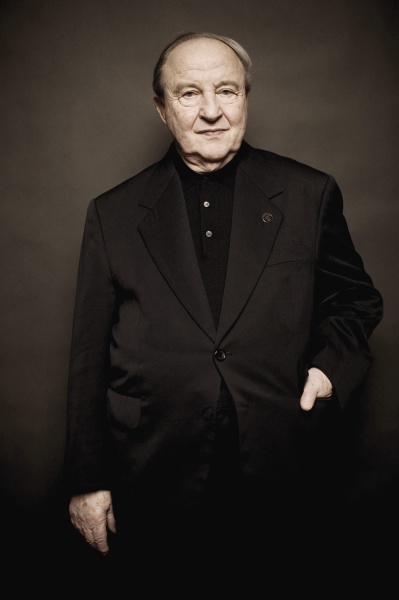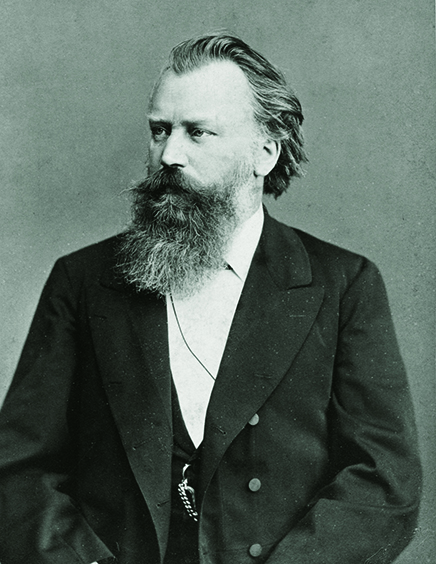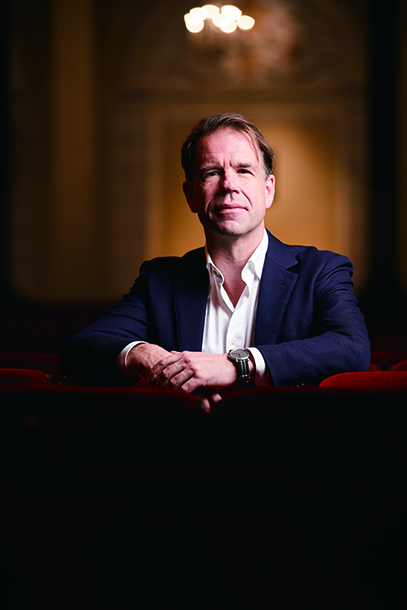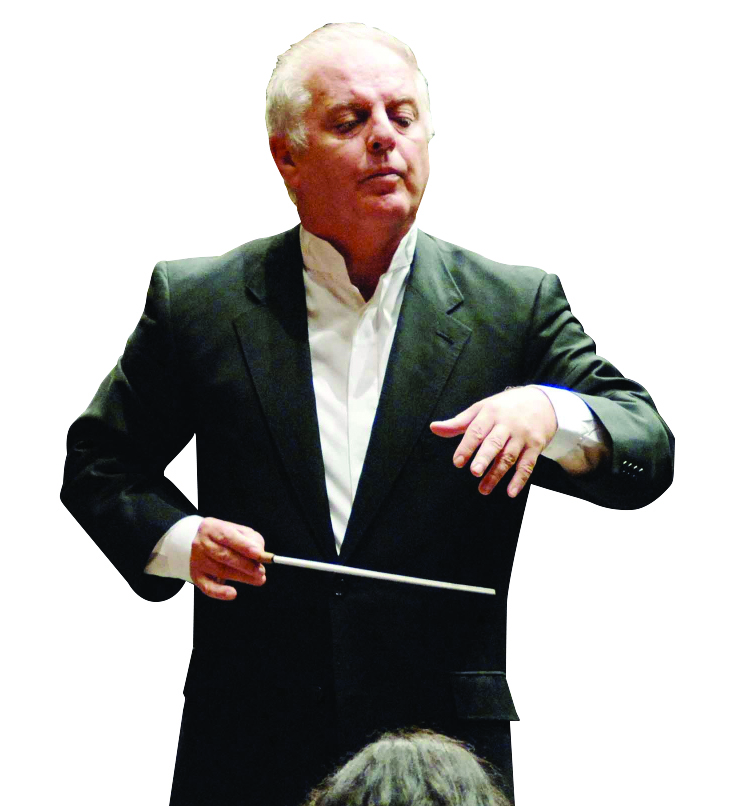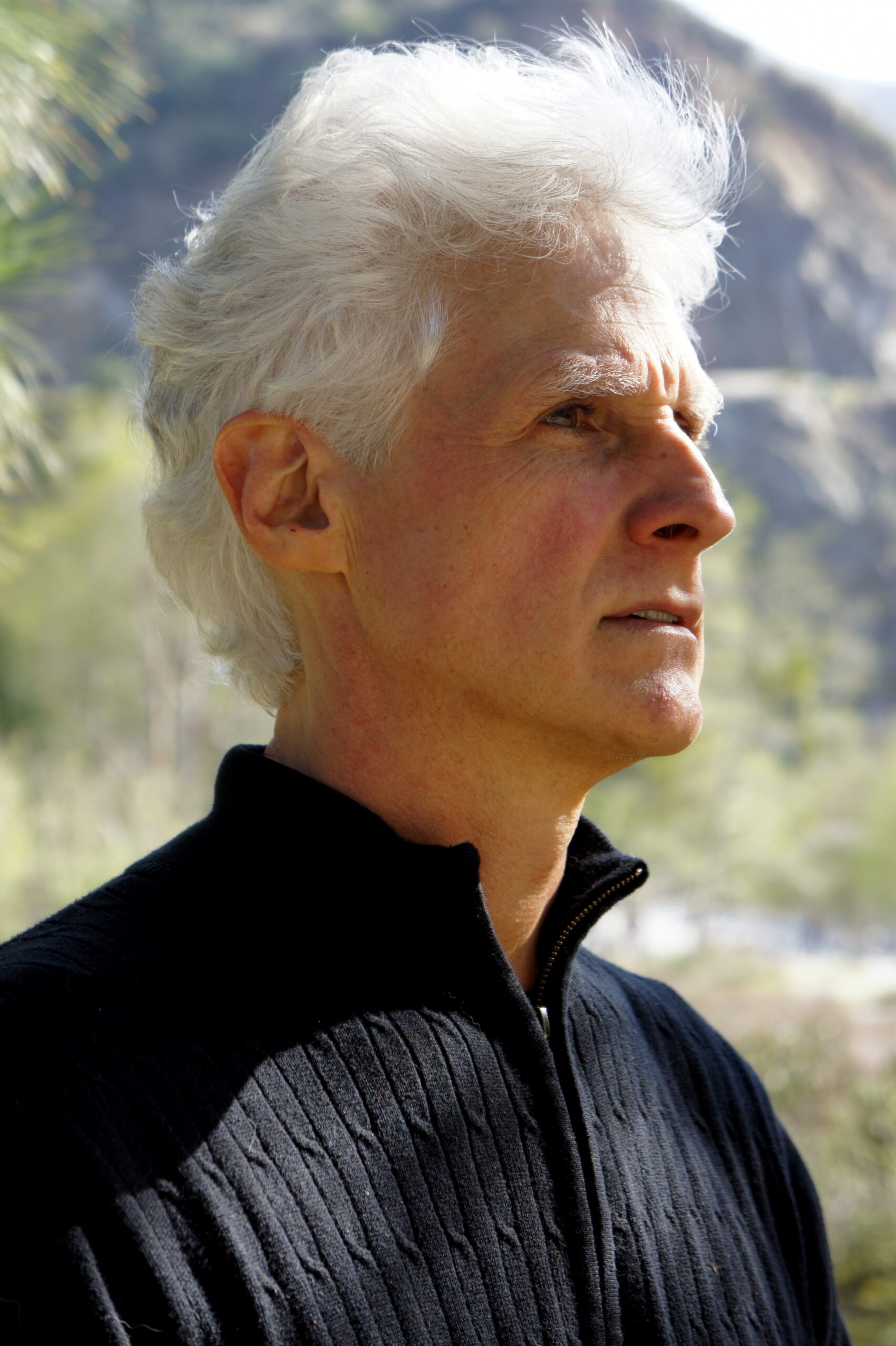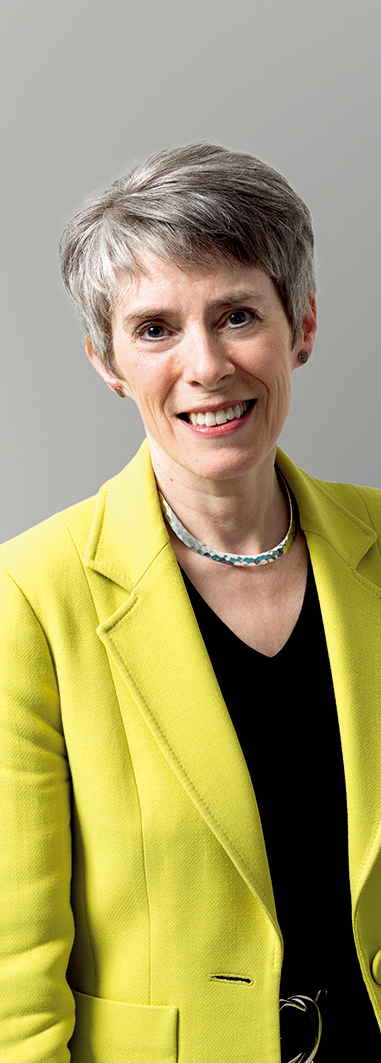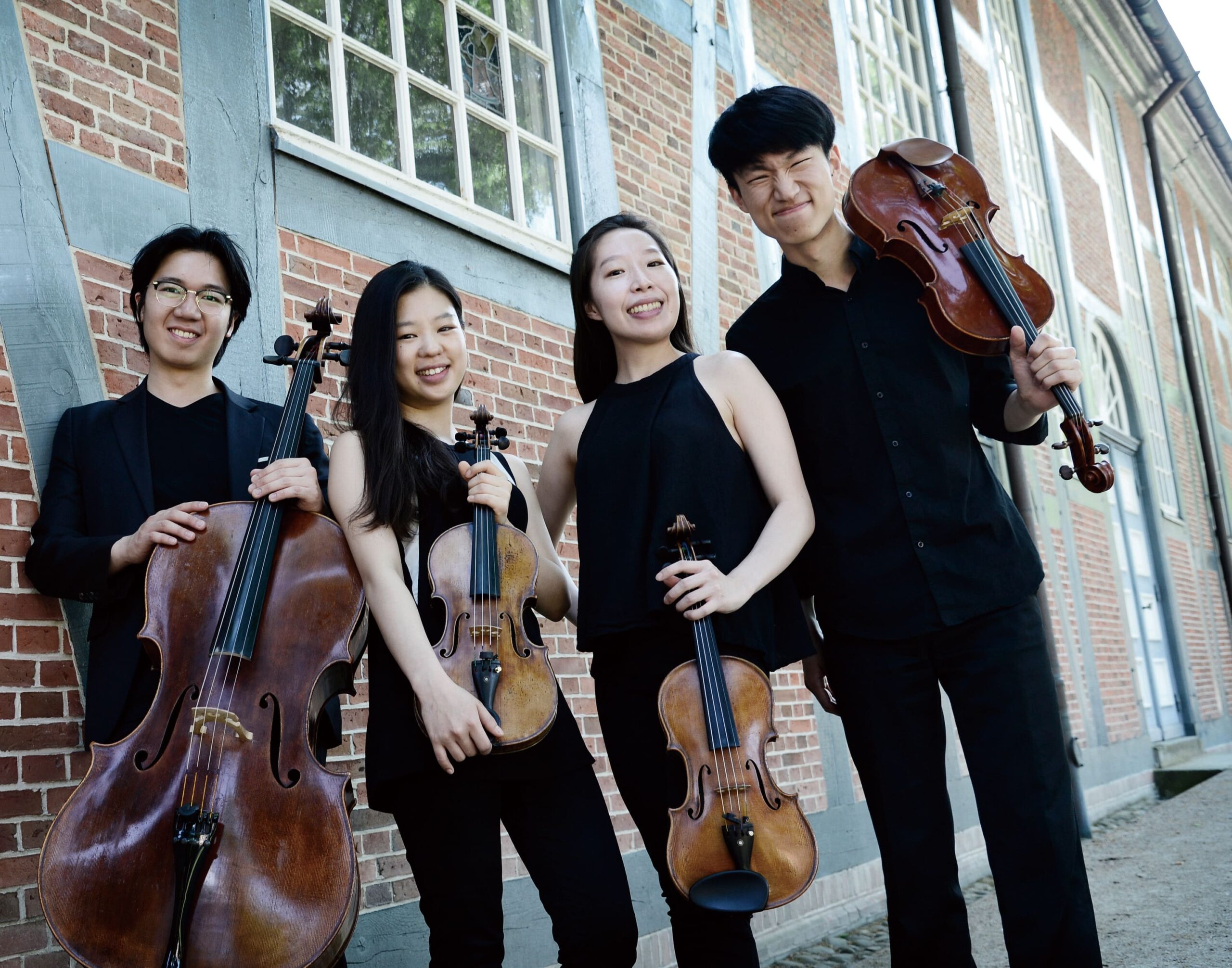3년 전 어느 뜨거운 여름 밤, 콘서트가 끝난 후 나는 한 명의 피아니스트, 그리고 현악 4중주단과 함께 미리 예약해둔 레스토랑으로 향했다. 그런데 이미 문을 닫은 것이 아닌가. 시내에 문을 연 음식점이 하나도 없었다. 캐나다의 수도 오타와의 밤은 일찍 찾아온다. 밤 11시에 영업 중인 음식점이라고는 네온 불빛이 번득이는 24시간 여는 작은 밥집뿐이었다.
누군가가 와인 리스트를 요청했다. 그런 게 있을 리 없었다. 채식요리 옵션도 따로 없었다. 우리 다섯 명이 구시렁대며 차가운 맥주잔으로 입을 가져가는 동안, 메나헴 프레슬러는 플라스틱 테이블에 앉아 환히 웃었다. 그리고 세 시간에 걸쳐 브람스와 친분이 있는 사람을 내가 더 많이 만나봤네, 네가 더 많이 만났네 하며 우리는 열띤 논쟁을 했다. 에머슨 4중주단도 나도, 그날 밤을 절대 잊지 못할 것이다. 이튿날 아침 7시, 메나헴은 아침식사 자리에서 어젯밤에 이은 2차전을 기대하며 우리를 기다리고 있었다.
12월에 90세가 되는 그의 히브리어 이름(‘위로자’라는 뜻)을 모르는 사람은 거의 없다. 메나헴은 58년간 보자르 트리오의 피아니스트로 활동하며 이 단체를 최다 공연 및 연주 여행 횟수를 자랑하는 피아노 트리오로 만들었다. 동시에 인디애나 주립대학에서 세계 최고의 교정 교수로 명성을 쌓아왔다. 2008년 보자르 트리오 해체와 함께 그는 음악적 현자 및 솔로 피아니스트로 제2의 커리어를 시작했다.
그가 음악인들과 작업하는 데 딱히 정해진 방법이 없다. 에머슨 4중주단과의 리허설에서는 거의 모든 프레이즈마다 연주를 중지시키고 쓴 소리를 쏟아 붓는다. 왕립음악원 학생들에게는 칭찬만 해준다. 환히 미소 짓는다. 그러면 한순간에 모든 것이 달라진다. 연주자들의 소리·표현·자세·자신감까지. 나는 내 음악인생 평생 ‘메나헴 효과’만큼 강력한 것을 본 적이 없다. 신비스런 예술세계의 가장 심오한 진리를 비언어적 방법으로 전달하는 그의 힘이란. 그 힘의 원천은 선량함이다.
나치가 정권을 장악했을 당시, 아홉 살의 메나헴은 독일 마그데부르크에 살고 있었다. 그 끔찍한 시간에 대한 메나헴의 기억 속에, 체포의 위험을 무릅쓰고 시내를 가로질러 그의 집까지 와서 레슨해주던 교회 오르간 주자 키첼 아저씨가 있다. 수정의 밤(Kristallnacht), 가족이 운영하는 아래층 가게를 폭도들이 때려부수는 동안 메나헴은 침대 밑에 숨어있었다. 그 와중에도 그가 자세히 기억하는 사람이 있다. 나치 돌격대 제복을 입고 현관 앞에 서서 자신의 유대인 이웃들을 폭동으로부터 보호하던 한 청년이다.
1939년, 메나헴의 가족은 피신해 팔레스타인에 이르렀다. 메나헴은 정신적 충격으로 거식증이 생겼다. 그는 “식사가 나와도 먹을 수가 없었다. 음악을 너무 사랑했기 때문에 먹지 못한 채 레슨을 받다가 기절한 적도 있었다. 하지만 음악은 내 인생에 의미를 주었다. 음악이 나를 살렸다”라고 말한다.
그의 스승들은 같은 처지의 난민이었다. 엘리야후 루디아코프는 러시아 출신 피아니스트였고, 부소니의 제자 레오 케스텐베르크는 한때 바이마르 공국의 프로이센 문화성 고문이었으며 베를린에 현대적 음악 스타일을 소개한 선지자였다. 텔아비브의 백열 속에서, 메나헴은 전 세계의 다양한 음악 스타일을 습득했다.
미국에서 열린 피아노 콩쿠르 우승으로 그의 커리어는 급성장했다. 레너드 번스타인은 메나헴을 가리켜 “진정한 피아노의 시인”이라고 칭했다. 이스라엘 수석 랍비의 주례로 결혼한 그는 아르투르 슈나벨이 머물고 있던 뉴욕 호텔로 옮겨 독주회 일정을 준비 중이었다. 그러던 중 토스카니니의 악장 다니엘 길레, 첼리스트 버나드 그린하우스와 우연히 만난다. 세 사람 사이에 특별한 화학작용이 있었다. 그렇게 탄생한 보자르 트리오는 탱글우드 페스티벌에서 데뷔한 후 미 대륙을 종횡무진하며 소도시 콘서트홀까지 선교사적인 성실함으로 실내음악을 전했다.
메나헴은 당시를 이렇게 전한다. “공연 티켓 가격이 너무 낮아 본전도 못 찾기 때문에, 우리는 차로 이동해야 했다. 계약서는 콘서트 중간 800킬로미터 이상의 이동을 금하고 있지만, 때로는 1천 킬로미터 넘는 거리를 운전하기도 했다. 일주일에 일곱 번까지도 공연했다. 공연이 끝나면 음식점은 다 문을 닫은 시각이었다. 자판기 감자칩으로 배를 채웠다. 어떤 상황에도 우리는 그러려니 했다.”
실력 있는 실내악 앙상블이라면 으레 그렇듯, 보자르 트리오 역시 항상 의견 충돌이 있었다. 14년 후 길레가 은퇴하면서 이시도어 코언이 빈자리를 채웠다. 트리오의 이름이 점점 알려지자, 메나헴은 단체의 이름 뒤에 자신을 숨길 수 있음을 기뻐했다. 그는 아내 자라 덕분에 자신이 온전한 정신을 유지할 수 있었다고 말한다. “집사람은 집에 무슨 문제가 있을 때마다 나에게 이렇게 말했다. ‘Sorge dich nicht!(걱정 말고 가요!)’ 아내의 지원이 없었다면 내가 이룬 모든 것은 다 불가능했을 것이다.”
‘새 바이올리니스트 찾기’에 별 뜻이 없어 그는 5년 전 트리오를 해체했다. 집에서 보내는 평온한 시간을 기대하던 그에게 솔로 공연 요청이 물밀 듯 들어오기 시작했다. “나라는 사람이 이 정도까지 알려진 줄은 몰랐다”라며 그는 수줍게 웃는다. 콘세르트헤보 오케스트라·파리 오케스트라·베를린 필하모닉 등 최고의 오케스트라들이 협주곡 연주를 부탁해왔다. 90세 생일을 앞두고, 두 개의 음반사에서 그의 독주 음반을 발매했다.
메나헴 프레슬러의 베토벤 소나타 31번(Bis) 혹은 바가텔(La Dolce Volta)을 들어보라. 첫 음을 듣는 순간부터, 빠른 연주가 유행하기 이전의 시간, 즉 명성은 덧없고 글 읽는 사람이 귀하며 소리가 연주자의 품성을 그대로 반영하던 그때로 돌아가게 된다. 메나헴의 연주에는 외향적이거나 충동적인 것이 없다. 그는 모든 음을 악보에 있는 그대로 연주하면서도 생기와 새로움을 불어넣는다. 그리고 관객은 연주를 통해 전달되는 영원한 진리에 행복과 안심을 느끼는 동시에, 왠지 이 사람의 연주가 있다면 살아갈 수 있을 것 같은 위로를 받는다.
나는 도대체 메나헴 프레슬러 음악의 어떤 면이 다른 연주자와 비교할 수 없는 차이를 만드는 것인가에 대해 오랫동안 고심했다. 그와 직접 이야기도 나누어보았다. 그의 접근법이 지닌 간결성의 심오함은 감히 반박할 수 없을 정도이며, 동시에 그 깊이는 마음이 얕은 사람까지도 볼 수 있을 정도로 가시적이다. 이러한 상반된 관계를 공존시킨다는 것은 가히 천재라고밖에 볼 수 없다.
내가 생각하는 메나헴만의 비결은 타인의 좋은 점을 보려는 성향이다. 그는 한번 친구로 삼으면 온 마음을 다해 사랑을 쏟아 붓는다. 그와 함께 있을 때면 원래의 나보다 내가 훨씬 괜찮은 사람처럼 느껴진다. 메나헴이 그런 재능을 음악에 적용할 때, 그의 연주는 현대의 예술에 만연한 이기심, 욕심 그리고 냉소를 날려버린다. 작곡가들이 의도한 순수함과 천진난만함을 회복시키는 것이다. 비결 역시 그의 성품만큼이나 간단명료하지 않은가.
12월 16일은 메나헴의 90세 생일이다. 독자들이여, 그날 그대들이 어디에 있든지 부디 메나헴 프레슬러를 위해 건배하기를 부탁한다.
“르하임(Lechaim), 만수무강을 위하여!”
번역 윤수린
Raise a Glass to Menahem Pressler
노먼 레브레히트 칼럼의 영어 원문을 함께 제공합니다
One hot night three summers ago, I came out of a concert with a pianist and a string quartet to find the restaurant they had booked for us was shut, as were all other places downtown. Ottawa, a seat of government, goes to bed early. At 11 pm, the only joint open was an all-night diner with neon lighting.
Someone called for a wine list, some hopes. There were no vegetarian options either. Five of us muttered into cold beers. Menahem Pressler sat down at a plastic-topped table, and beamed. For three hours we argued over which of us had met more people who knew Brahms. Neither the Emerson Quartet nor I will ever forget that night. Next morning at 7, Menahem was waiting in the breakfast room, ready for round two.
Ninety years old this month (Dec) and known everywhere by his Hebrew name (meaning ‘comforter’), Menahem played 58 years in the Beaux Arts Trio, the most prolific piano trio on record, the hardest working on the road. All the while he was gaining at reputation at the University of Indiana in Bloomington, as the best remedial teacher on earth. When the trio packed up in 2008, he embarked on a second career as musical sage and soloist.
He has no set method for working with musicians. Rehearsing the Emersons, he stops them with a burst of criticism after almost every phrase. With Royal Academy of Music students, he offers nothing but praise. Then, he beams. In an instant, everything changes: their sound, expression, posture confidence. In a full musical life, I have never seen anything like the Menahem Effect – a transmission, mostly non-verbal, of the deepest truths in a mysterious art. Where it comes from is a well of goodness.
Nine years old in Magdeburg when the Nazis came to power, Menahem’s memory of those terrifying times is of a church organist, a man called Kitzel, who risked arrest to cross the town and give him lessons at home. On Kristallnacht, Menahem hid beneath a bed as a mob smashed up the family store below. But the detail he remembers is the youth who stood at their front door in an SA uniform, shielding his Jewish neighbours from the violence.
The Presslers fled Europe in 1939 and reached Palestine where Menahem, traumatised, fell victim to an eating disorder. ‘Each time a meal was served, I couldn’t eat,’ he says. ‘I fainted in a lesson, I was so involved in the music. But music gave meaning to my life. It saved my life.’
His teachers were fellow-refugees. Eliyahu Rudiakov was a Russian pianist. Leo Kestenberg, a Busoni pupil, had been director of the Prussian Ministry of Culture through the Weimar Republic, a visionary who gave Berlin its modernist edge. In the white heat of Tel Aviv, Menahem acquired a universal span of musical styles.
Victory in a US piano competition put him on a fast career track. Leonard Benstein called him ‘a genuine pianistic poet’. Married by the Israeli Chef Rabbi Kook, he moved into the New York hotel inhabited by Artur Schnabel and waited for solo dates. A chance encounter with Daniel Guilet, Toscanini’s concertmaster, and a cellist, Bernard Greenhouse, sparked an unusual chemistry. After a debut at the Tanglewood Festival, the trio criss-crossed the American continent, bringing chamber music to small town halls with the diligence of ordained missionaries.
‘We had to go by car because the fee was so low that we would never have broken even,’ he relates. ‘The contract said never more than 500 miles between concerts. Sometimes we drove 700 miles. We played seven concerts a week. After the concert nothing was open, so we ate potato chips from a vending machine. Nothing fazed us.’
Like every good chamber ensemble, the trio argued all the time. When Guilet retired after 14 years, Isidore Cohen took his place. As their fame grew, Menahem was happy to shelter behind a collective identity. He credits his wife, Sara, with keeping him sane. ‘She would always say to me when there was some problem at home, “Sorge dich nicht ? don’t worry, go!”. Without her support I would never have done what I have done.’
He disbanded the trio five years ago, unwilling ‘to bring up another violinist’, and was looking forward to time at home when the solo dates started to flow. ‘I never thought that I was known personally to the extent that I was,’ he laughs shyly. Top orchestras ? the Concertgebouw, Paris, Berlin Philharmonic – booked him to play concertos. On the eve of his 90th birthday, two labels have issued solo recordings.
Listen to Menahem Pressler play Beethoven’s 31st sonata (on Bis) or the Bagatelles (on La Dolce Volta) and, from the opening notes, you revert to a time before flash playing and the fools of fame, a time when text was sacrosanct and sound was a reflection of a player’s character. There is nothing extravert or impulsive about Menahem’s playing. Each note is measured for its worth and comes up sounding bright and new. The listener emerges uplifted and reassured ? elevated by eternal verities and comforted that, in this pair of hands, they somehow survive.
I have thought long and hard about what it is that Menahem Pressler does in music that is matched by no other musician. I have also discussed it with him. The simplicity of his approach is so profound it cannot be contradicted, yet the depth is visible even to the shallow-minded. Opposites such as this belong to the realms of genius.
The secret, I think, lies in his tendency to see the good in others. When Menahem takes you as a friend, he offers nothing less than love. When you spend time with him, you feel a better person than you really are. When he applies these gifts to music, they blow away the egotism, greed and cynicism that encrust the art in present times and restore the pristine naivety intended by its composers. There, that’s all there is to it.
On 16 December, his 90th birthday, readers wherever you may be please raise a glass to Menahem Pressler with a cry of ‘Lechaim ? to life!’ NL
